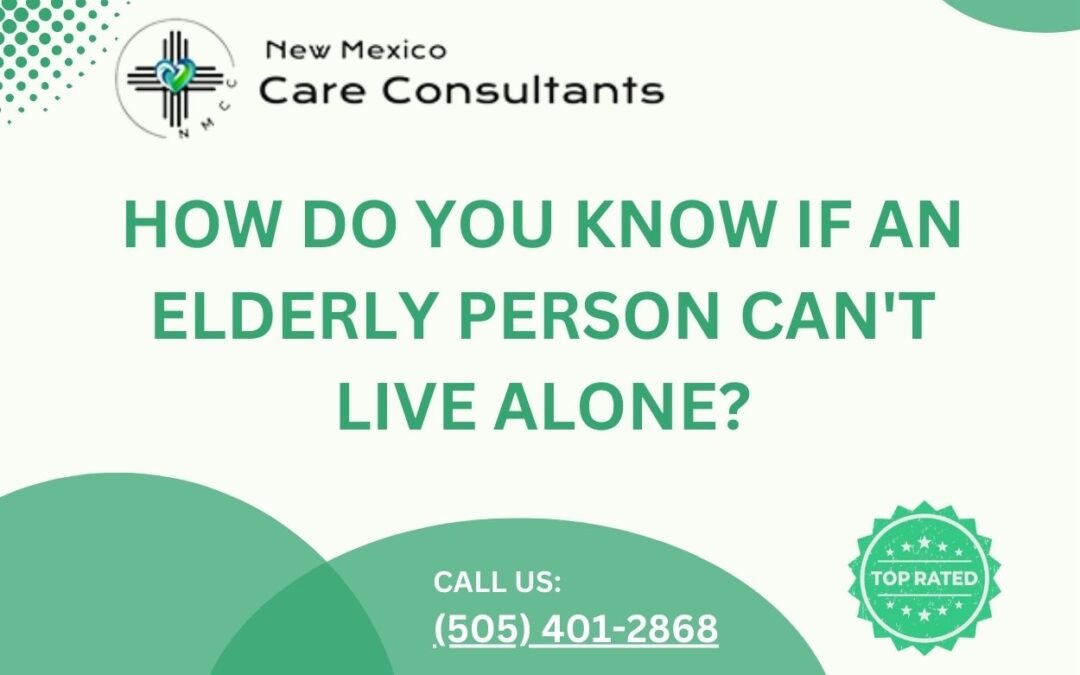As our loved ones age, concerns about their ability to live independently often arise. Determining whether an elderly person can continue to live alone involves assessing various factors related to their physical health, cognitive function, and overall well-being. This decision is crucial for ensuring their safety and quality of life. In Albuquerque, where a growing elderly population seeks support, understanding the signs that indicate an individual may no longer be able to live alone is essential.
Physical Health and Mobility:
One of the primary indicators that an elderly person may struggle to live alone is a decline in physical health and mobility. Paying attention to changes in their ability to perform daily activities such as bathing, dressing, and preparing meals is critical. Difficulty with mobility, balance issues, and an increased risk of falls are warning signs that living alone may become a challenge.
Albuquerque, like many other cities, has seen a rise in the demand for elderly care services. Families in the area often turn to specialized care providers to support their loved ones in maintaining a safe and comfortable living environment.
Cognitive Function and Memory:
Another important aspect to consider is the individual’s cognitive function and memory. Conditions such as dementia or Alzheimer’s disease can significantly impact a person’s ability to live independently. Forgetfulness, confusion, and difficulty managing medications are signs that warrant careful consideration. In Albuquerque, where resources for elderly care are increasingly available, families may explore options such as memory care facilities or in-home caregivers specializing in dementia care.
Social Isolation and Emotional Well-being:
An elderly person’s emotional well-being and social connections are crucial factors in determining their ability to live alone. Social isolation can lead to feelings of loneliness and depression, affecting both mental and physical health. If an individual shows signs of withdrawing from social activities, neglecting personal hygiene, or expressing a sense of loneliness, it may indicate that living alone is no longer conducive to their overall well-being.
Albuquerque Elderly Care Services:
In Albuquerque, recognizing the signs that an elderly person can’t live alone prompts families to explore the range of elderly care services available in the community. Utilizing the services of professional caregivers, assisted living facilities, or senior living communities can provide the necessary support to ensure the safety and comfort of aging loved ones.
These services often include assistance with daily activities, medication management, and opportunities for social engagement. The presence of trained caregivers can also offer peace of mind to family members, knowing that their loved ones are receiving the care and attention they need.
Emergency Situations and Safety Concerns:
Assessing an elderly person’s ability to handle emergency situations is crucial when considering whether they can live alone. If an individual has difficulty responding to emergencies, managing medications, or if there’s a heightened risk of accidents, it may be an indication that additional support is necessary.
Albuquerque elderly care services often include emergency response systems and safety measures designed to address unforeseen situations. These features contribute to a secure living environment and provide reassurance to both seniors and their families.
Family Discussions and Professional Assessments:
Family discussions play a vital role in understanding the needs and preferences of the elderly person in question. Engaging in open and honest conversations about their well-being and daily challenges can help identify whether living alone is still a viable option. Additionally, seeking professional assessments from healthcare providers, social workers, or geriatric specialists can provide valuable insights into the individual’s physical and mental health status.
Conclusion:
Determining whether an elderly person can continue to live alone involves a thoughtful evaluation of various factors, including physical health, cognitive function, emotional well-being, and safety concerns. In Albuquerque, where the demand for elderly care services is on the rise, families have access to a range of resources to support their loved ones in maintaining a fulfilling and safe lifestyle. Recognizing the signs that living alone may no longer be suitable is the first step toward ensuring that aging individuals receive the care and assistance they need to thrive in their later years.

